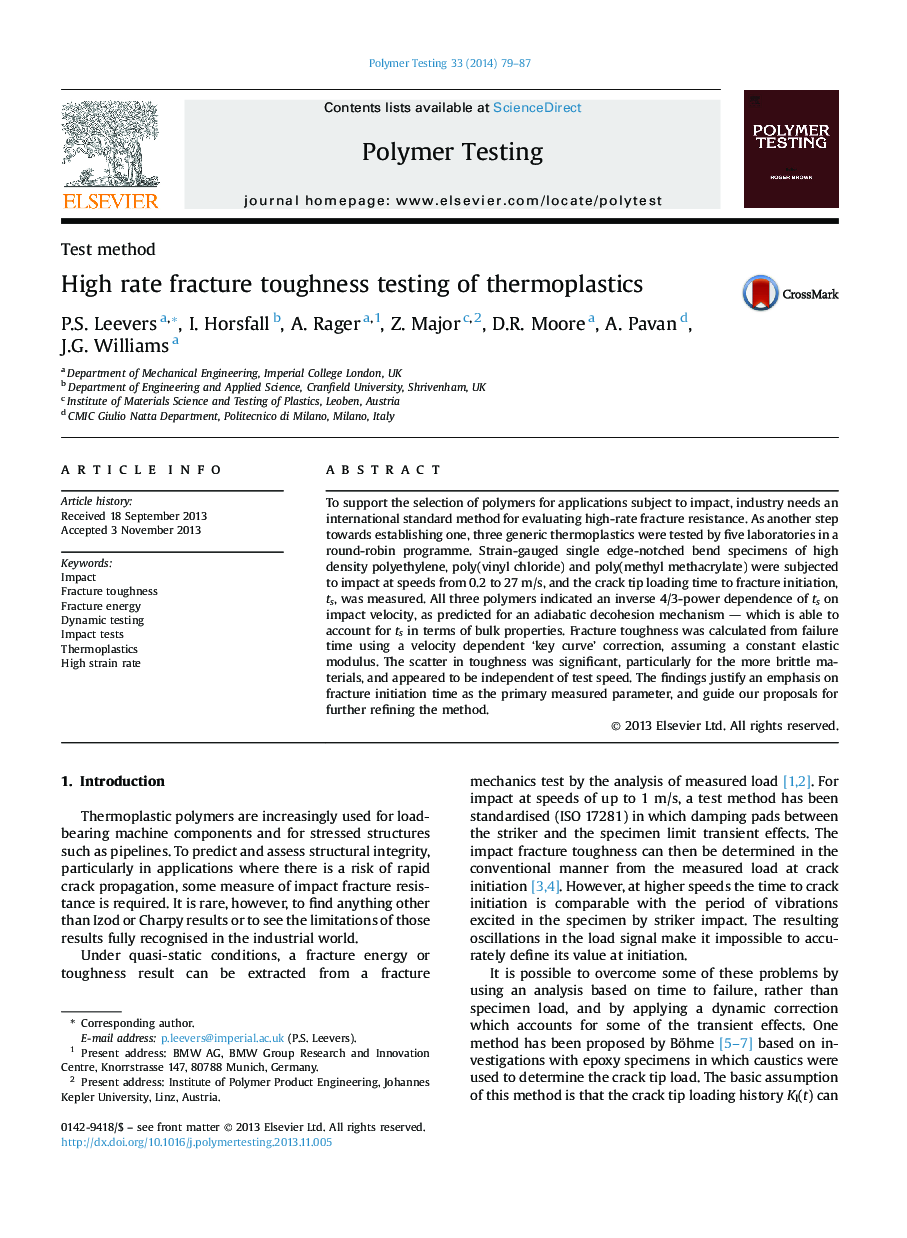| Article ID | Journal | Published Year | Pages | File Type |
|---|---|---|---|---|
| 5206291 | Polymer Testing | 2014 | 9 Pages |
Abstract
To support the selection of polymers for applications subject to impact, industry needs an international standard method for evaluating high-rate fracture resistance. As another step towards establishing one, three generic thermoplastics were tested by five laboratories in a round-robin programme. Strain-gauged single edge-notched bend specimens of high density polyethylene, poly(vinyl chloride) and poly(methyl methacrylate) were subjected to impact at speeds from 0.2 to 27Â m/s, and the crack tip loading time to fracture initiation, ts, was measured. All three polymers indicated an inverse 4/3-power dependence of ts on impact velocity, as predicted for an adiabatic decohesion mechanism - which is able to account for ts in terms of bulk properties. Fracture toughness was calculated from failure time using a velocity dependent 'key curve' correction, assuming a constant elastic modulus. The scatter in toughness was significant, particularly for the more brittle materials, and appeared to be independent of test speed. The findings justify an emphasis on fracture initiation time as the primary measured parameter, and guide our proposals for further refining the method.
Keywords
Related Topics
Physical Sciences and Engineering
Chemistry
Organic Chemistry
Authors
P.S. Leevers, I. Horsfall, A. Rager, Z. Major, D.R. Moore, A. Pavan, J.G. Williams,
